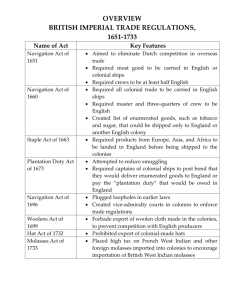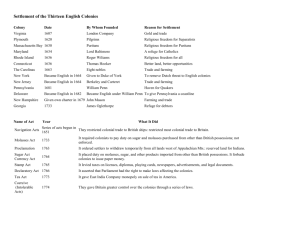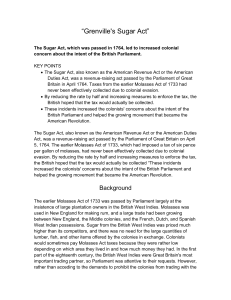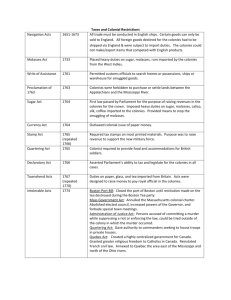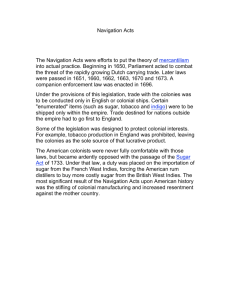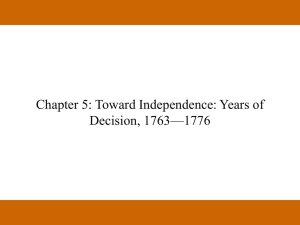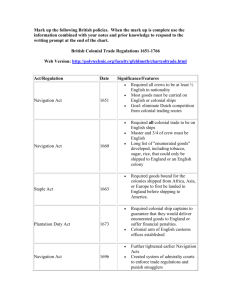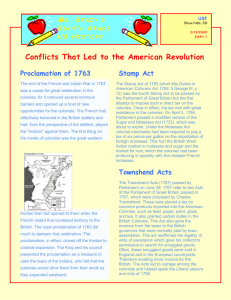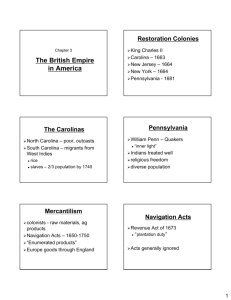The+Sugar+Act
advertisement
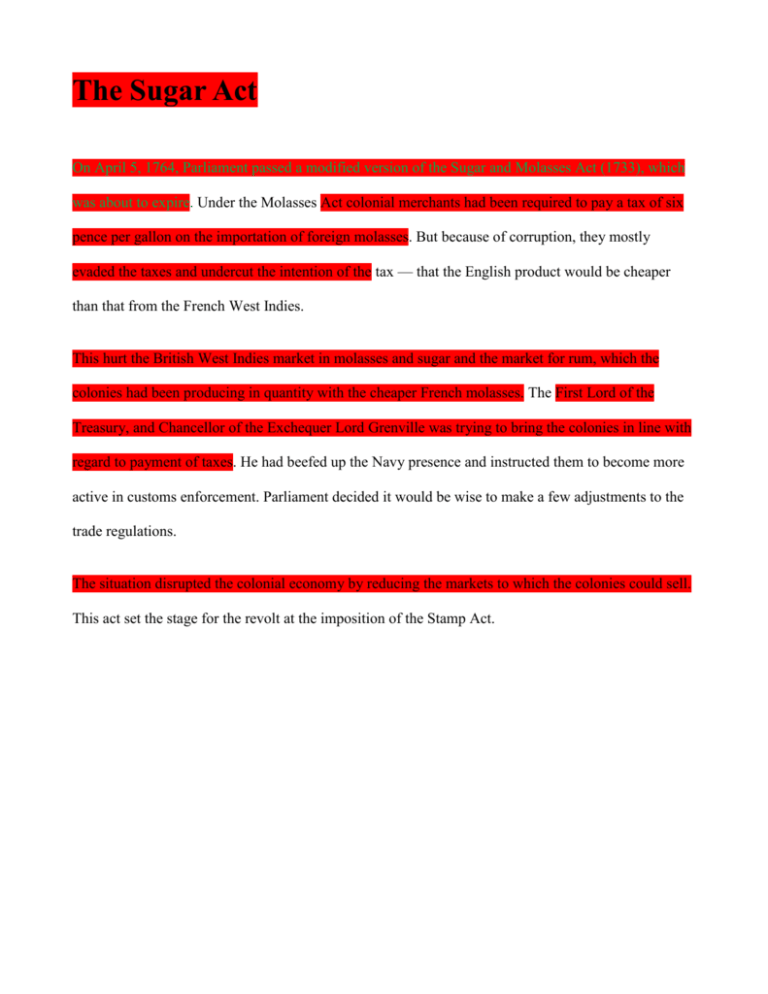
The Sugar Act On April 5, 1764, Parliament passed a modified version of the Sugar and Molasses Act (1733), which was about to expire. Under the Molasses Act colonial merchants had been required to pay a tax of six pence per gallon on the importation of foreign molasses. But because of corruption, they mostly evaded the taxes and undercut the intention of the tax — that the English product would be cheaper than that from the French West Indies. This hurt the British West Indies market in molasses and sugar and the market for rum, which the colonies had been producing in quantity with the cheaper French molasses. The First Lord of the Treasury, and Chancellor of the Exchequer Lord Grenville was trying to bring the colonies in line with regard to payment of taxes. He had beefed up the Navy presence and instructed them to become more active in customs enforcement. Parliament decided it would be wise to make a few adjustments to the trade regulations. The situation disrupted the colonial economy by reducing the markets to which the colonies could sell. This act set the stage for the revolt at the imposition of the Stamp Act.
